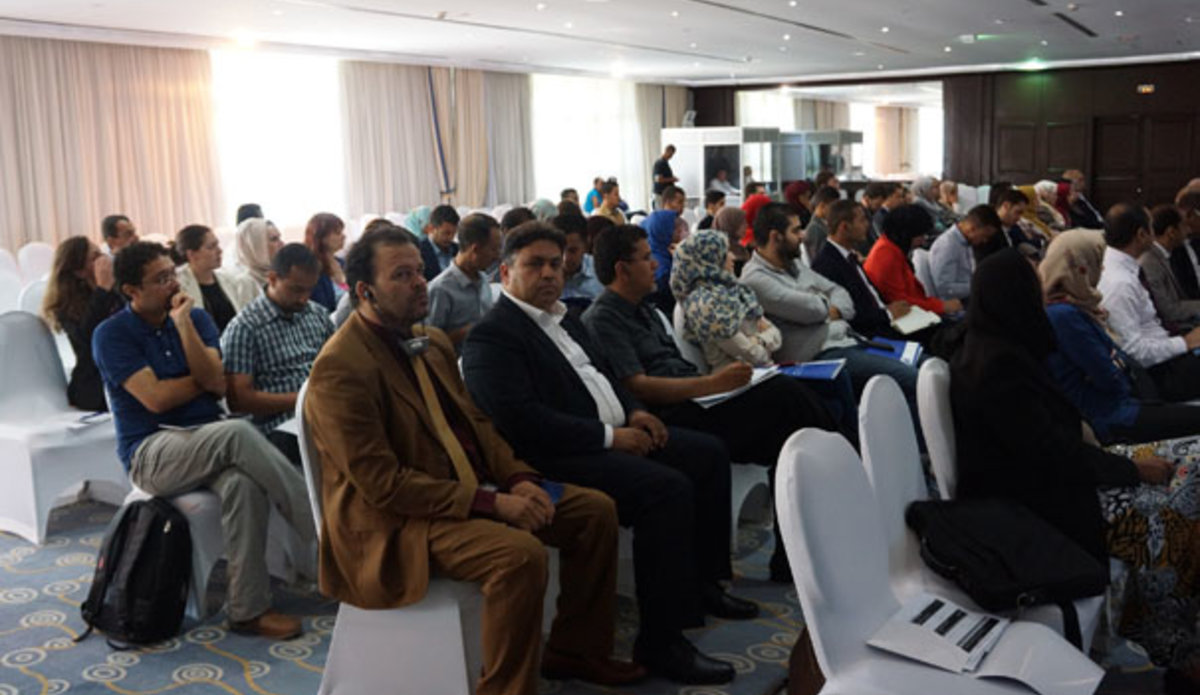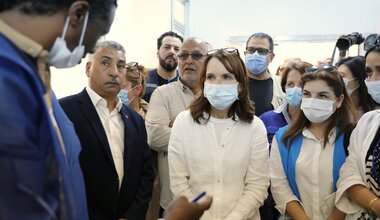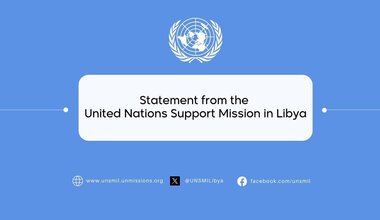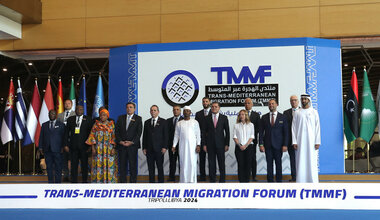Libyan Civil Society Organizations Mapping launched: Joint Cooperation between UNDP and UNICEF
Tunis, Tunisia, 19 May 2015 - UNDP and UNICEF jointly launched the Libyan Civil Society Organizations’ mapping report providing a detailed database with information on the nature of activities in the cities of Tripoli, Benghazi, Misrata, Zawiya and Zuwara. The results will serve as a useful reference for relevant stakeholders in their developmental and humanitarian interventions in Libya.
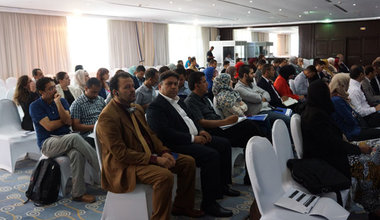
Mr. Selva Ramachandran, UNDP Libya Country Director, underlined the continuous efforts of UNDP to support the transitional process in Libya. “The launching of the knowledge product on Civil Society Organizations is part of our commitments in support of the growing role of CSOs across the country,” he said. “The report is a joint effort of UNDP and UNICEF and will enable us to understand the dynamics of CSOs and identify their capacities and needs. We also hope this publication will serve as a useful tool for all those working on this critical area,” he added.
Dr. Ghassan Khalil, UNICEF Special Representative, stressed the importance of the civil society for the democratic transition of Libya. “The mapping is expected to provide local governance institutions and all other actors with a better understanding of the capacities and challenges that the civil society is facing”, he said. “UNICEF will grant a particular attention, based on this mapping, to developing the capacity of civil society organizations; this assessment will undoubtedly lead to a better strategy to support the civil society organizations and in encouraging CSOs to become specialized, especially in the area of child rights,” he added.
The highlights of the report indicates a post revolution increase in Libyan Civil Society Organizations’ (CSOs) activities both locally and among Libyans abroad. A remarkable high prevalence of women CSOs has been reported with 12 per cent among all CSOs surveyed identifying themselves as women CSOs. According to the report, the CSOs focus their activities on service delivery, advocacy, and dialogue.
The report documents the increased cooperation at the local level between CSOs and municipal local councils which is becoming instrumental and cost-effective in terms of maintenance of damaged infrastructure and providing health and educational services. The report calls to support the growing forms of constructive engagement between municipalities and civil society and highlights the need for support to strengthen both sides through capacity building interventions in planning, programme implementation and fostering dialogue and cooperation between local state authorities.
The mapping report further reveals that even with the increasing roles of CSOs in delivering services across the country, the funding support to CSOs is declining, forcing organizations to rely predominantly on contributions from their own members. The slowdown of the Libyan economy and the ongoing armed conflict has contributed to the decrease of funding for their activities.
The launching event was marked with the release of a similar UNDP publication focusing on Women, Peace and security, which is the first of its kind presenting a comparative overview on commonalities and differences in women’s and men’s perceptions of women, peace and security.
The CSOs mapping report is a joint product of UNDP and UNICEF in which the two agencies consolidated their efforts to identify priority areas needing urgent attention in the current Libyan context.
For further information, please contact:
Mohammed Salih, Communication Specialist, UNDP Libya, Country Office
Mohammed.salih@undp.org
Tel: +21654019779
Mostafa Omar, Communication Specialist, UNICEF Libya Country Office,
mosomar@unicef.org,
Tel: +216 990 70 815
 United Nations Peacekeeping
United Nations Peacekeeping UN
UN
